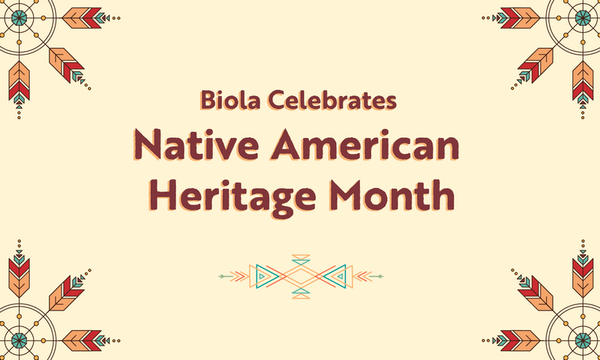Anyone else uncertain about what to do for a future career (please tell me I’m not the only one)? If that’s you, it’s completely okay! It can feel a bit overwhelming to live in the unknown and I want to help you navigate that the best way possible.
One practical step that any college student can take towards a future career is requesting informational interviews.
“In informational interviewing… you are mentally trying on jobs to see if they fit you”
- Richard Nelson Bolles, What Color is Your Parachute?
Information interviews are simply conversations that allow you to explore and be genuinely curious about people's work and stories. By listening to their personal journey, you are able to gain some insider perspective on their type of job and the industry that they’re in.
Informational interviews allow you to do the following:
- Gain practical knowledge on specific careers and industries that intrigue you. They provide insight into the work and culture of a particular industry or business.
- Practice communication skills by having conversations with strangers. Communicating well is a necessary skill to develop, especially for future interviews. What better way to practice for an interview than by being the interviewer yourself?
- Network with people in a field you may want pursue one day. By building authentic relationships early on in your college years, you are making connections that are not only valuable to you today, but have potential to endure through the rest of your life.
- Get advice on what types of experiences employers in this industry are looking to see on your resume and what they want to hear in an interview.
As a senior business student, I have had major success with informational interviews. I’ve reached out to friends and family back home, Biola alumni and people I’ve met through LinkedIn. I’ll share one quick story with you so you know it’s legit.
I’m originally from Minnesota and desire to move back there after graduation. While seeking opportunities in the midwest, I used filters on Biola’s Alumni Tool on LinkedIn and found someone who works at Target in Minneapolis, graduated from Biola 15 years ago and even went to my high school. I sent him a message on LinkedIn introducing myself and asking if we could chat on the phone.
He responded within a few hours and we got a time scheduled on the calendar for later that week. During our conversation he told me about his experiences with Target, the transition to post-grad life and he even connected me with more people at Target’s headquarters.
After talking to those new contacts, I learned about the recruiting process, what the day-to-day tasks look like and hear insider perspective on the pros and cons of their Marketing Development Program. I was surprised to learn what the transition from intern to full-time employee typically looks like as they are often switching departments. These conversations gave me answers to questions I never even knew I had — I’d call that a major success!
Here are some of the secrets for nailing a successful informational interview and some questions to ask during your conversation. I promise it’s much more fun and way less work than you think!
7 Steps to Informational Interviewing
1. Do your research
- First and foremost, figure out what it is you want to specifically learn about.
- Discover what kinds of people would be most valuable for you to talk to.
- Look at industry trends and company’s websites that interest you (be sure to check out their careers page as well)2.Identify people to reach out to
2. Identify people to reach out to
- Think about anyone and everyone you know who works in your industry of interest. Think beyond your family - maybe your friend’s parents, someone from your church, a professor or even a neighbor. It’s easier to have a conversation with someone you already have a connection with, so this is a great place to start.
- Pursue Biola connections using the Alumni page on LinkedIn to find people who already works in a position you want to learn more about.
- Use LinkedIn to search for companies or job titles you have interest in. Find profiles of those who hold those positions.
3. Make the initial contact
- This can seem like the most intimidating part of the whole process, but it really shouldn’t be! Check out the examples below.
- Reaching out to a Biola alumni:
Hi Kelly,
I saw your name on the Biola Alumni page and am really interested in what your journey to Haworth Marketing has looked like. I’m a senior marketing major at Biola and I desire to learn more about what kinds of opportunities are out there. Your career journey looks similar to what I may be interested in and I would love to hear more about it.
Would you be willing to share your experiences over the phone with me?
Thanks!
Katie
- Reaching out to a stranger:
Dear Ms. Velasquez,
I noticed your LinkedIn profile and your impressive background in Digital Marketing. I am currently studying Business Administration with an emphasis in Marketing at Biola University.
I would love to learn about your work experiences and any advice on entering into the marketing industry. Would you be open to having a short phone conversation or coffee meeting?
Thanks!
Katie
Reminders…
- Introduce yourself as a college student pursuing a _____ degree who has a specific interest in _____ and would like to hear about their experiences in that field/industry.
- Don’t use the word “interview” in your message or subject line. Remember, this is a normal conversation.
- Show some of your personality and excitement in this message! They will be much more inclined to talk to a student who sounds interesting, not bland.
- If you get a YES…
- Schedule a time that works best to connect.
- Discuss how you will talk… in-person, phone call, Skype?
- If you get a NO…
- Who are we kidding? You won’t.
- But if it actually happens, thank them and wish them the best in their career!
- Who are we kidding? You won’t.
4. Prepare for the interview
- Create a brief introduction on who you are and your hopes for the conversation.
- Have a list of questions (anchor link to questions below) prepared beforehand.
- DON’T ask questions you can Google. Show that you value their time by asking thoughtful questions that allow them to share their opinions and experiences!
5. Showtime
- Respect their time! Call when you said you would and arrive early if meeting in person. If you said it’d be a 30 minute interview, don’t go over that.
- Begin with asking how their day is going and giving your brief intro. This will help get the ball rolling.
- Use the questions you prepared beforehand. However, just because you have these doesn’t mean you have to ask all of them. These are simply guidelines — let the conversation flow naturally.
- Be excited about their answers and show clear interest in them and their career!
6.Follow-up
- Write a thank you email (or handwritten note to go the extra mile) within 1-2 days, showing them how grateful you are for their time and information.
- Stay in touch! LinkedIn is a great tool for this.
7. Reflect
- Write out what you learned, new questions you have and next steps to take.
- Ask yourself some questions:
- Does the person I just talked to use the skills I want to use on a daily basis?
- Would I enjoy working for that type of company/organization?
- What aspects of their work sounded energizing for me? What sounded draining?
Now that you know the ins and outs of info interviews, go for it! Utilize the time you have this summer to get these conversations started.
Confidence is key with this, so reach out even if it feels awkward or scary. I promise you will not regret it! You got this.
Potential Questions to Ask During the Interview
Personal Experiences:
- What attracted you to this career?
- What previous professional experiences helped you most in your role?
- Could you tell me about your career path and those common in this field?
- What is something that would surprise people about your day to day work?
- What career mistakes have given you your biggest lessons?
- How would you describe a typical day/week?
- What are current projects you are working on?
- What are the major responsibilities of your position?
- What kinds of skills and education are required in your position?
- What do you find most and least satisfying about your job?
- What are the positive and negative aspects of working in this career field?
- I’d like to walk through and see your work environment and the organization. Would that be possible and, if so, how could we arrange it?
Industry/Career Field:
- What’s one thing you wish someone would have told you before going into this industry?
- What are some of the most rewarding things about this industry?
- What trends and developments do you see in the future?
- What are the most significant changes you’ve seen in the industry over the past 5 years?
- What recommendations can you give to someone looking to enter this field?
- What traits, characteristics and skills do successful people in this field possess?
- What’s most important to prepare for a role like yours?
- What is the corporate culture of your company? Is it informal or formal? Do people work autonomously or in teams?
- What are the most helpful or prestigious professional associations? Are students invited to attend? Are student memberships available?
Naturally Incorporating Internship & Job Searching Talk:
- What steps would be involved in exploring how someone like me might become part of this organization?
- What advice would you have for me as a senior who is interested in this industry?
Need more help? Schedule an appointment with the Career Center
Katie is a Senior business major and works as a Peer Internship Ambassador in the Career Center.
 Biola University
Biola University



.jpg)